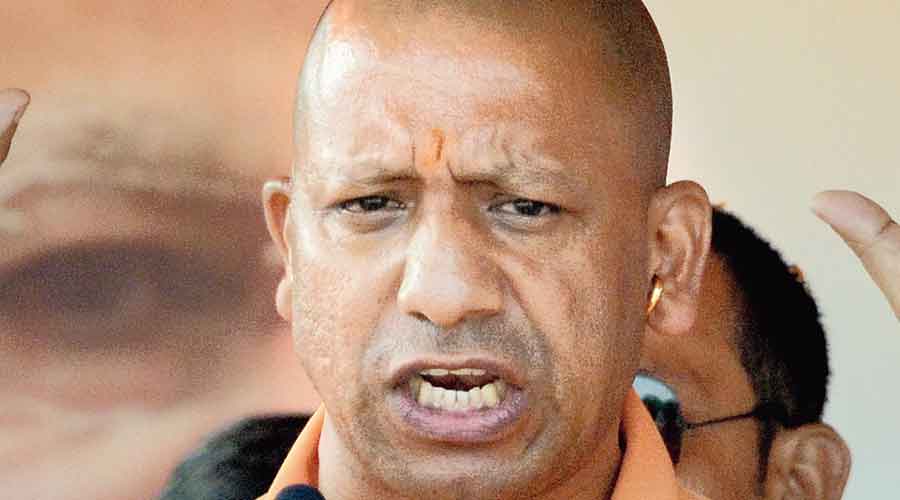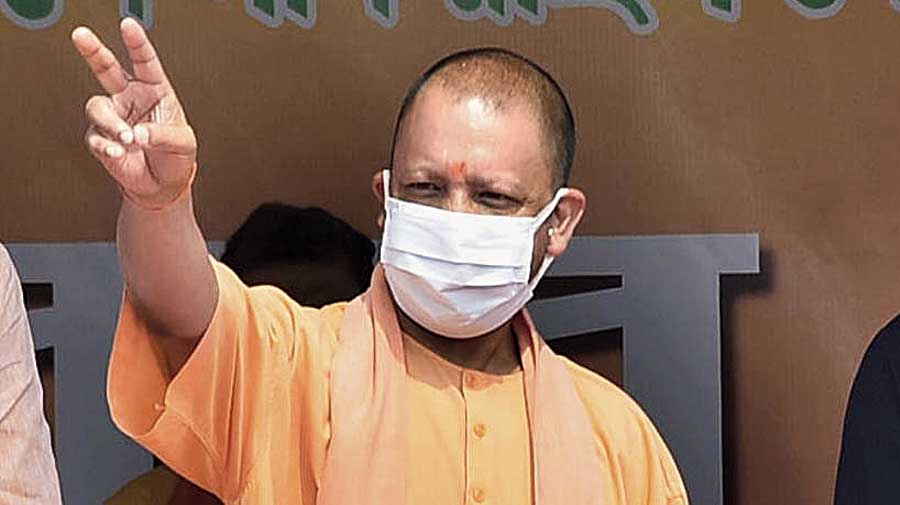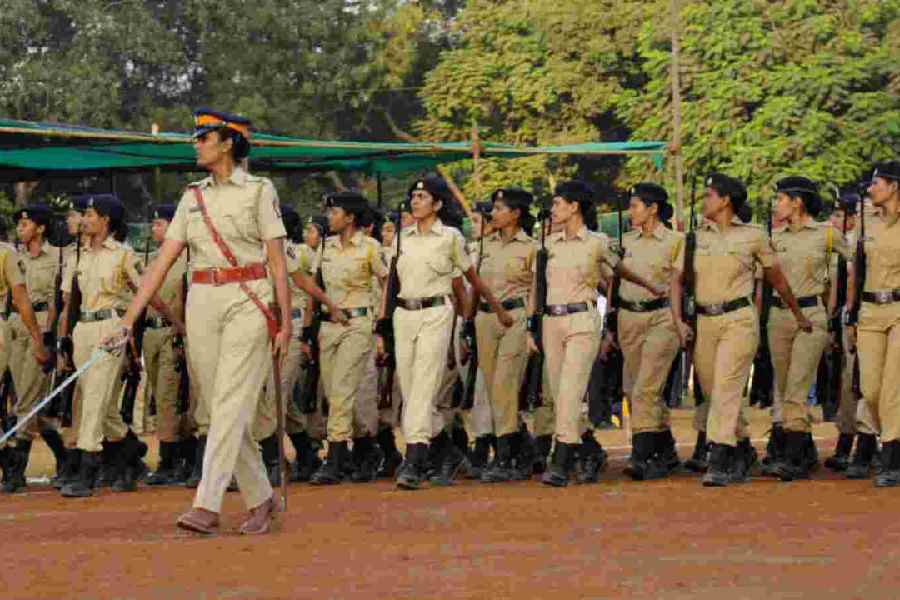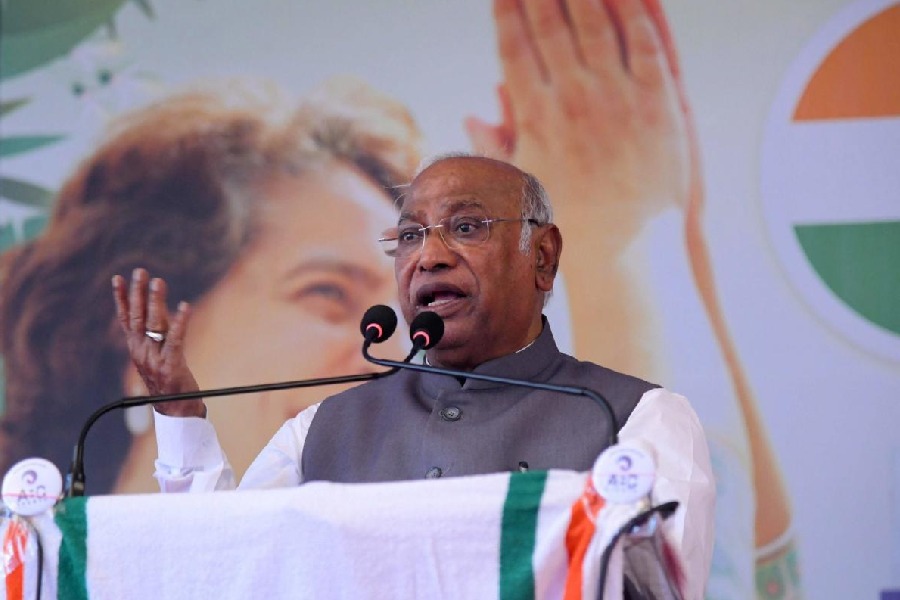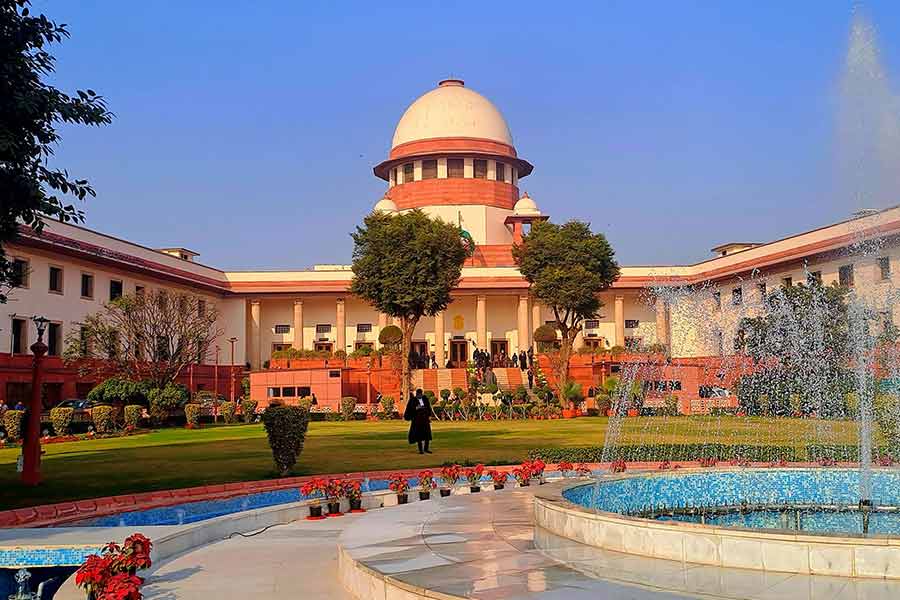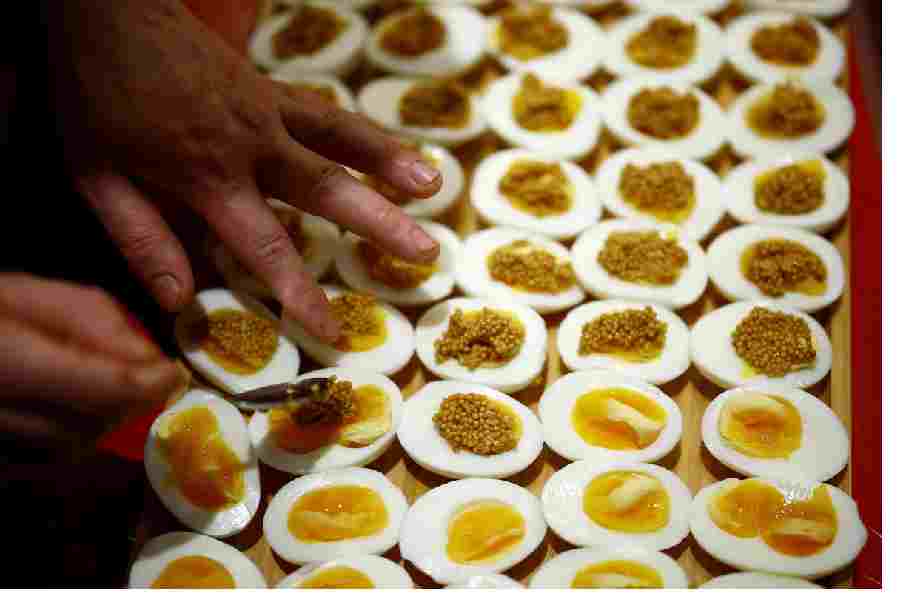The BJP plans to foreground Narendra Modi heavily in the Uttar Pradesh election campaign and replace a chunk of its sitting MLAs, aiming to tackle anti-incumbency and send a message to the ambitious Yogi Adityanath, party sources said.
Feedback from the ground suggests that chief minister Adityanath may not alone be able to tide the party over simmering anti-incumbency, BJP insiders said.
“Yogiji is a very popular chief minister but his influence is limited to traditional or diehard BJP voters,” a party leader said. He estimated Adityanath’s support base at between 17 and 20 per cent of the state’s electorate.
“Modiji, in contrast, has a much wider reach. His name sways more than 50 per cent of the voters across caste and community lines,” the politician, one of the BJP’s poll managers for Uttar Pradesh, said.
While seeking votes in Modi’s name in the states is standard BJP strategy, its implementation in Uttar Pradesh is significant because Adityanath is perceived to be pitching himself as Modi’s successor at the Centre.
The message from the BJP central leadership, however, seems to be that Modi remains the party’s supreme mascot and that without him the key state of Uttar Pradesh cannot be won.
Party managers in Delhi say in private that Adityanath could emerge as a strong leader, next only to Modi, if the BJP wins Uttar Pradesh and the plan therefore is to give most of the credit to Modi. The Prime Minister’s being the Lok Sabha MP from Varanasi makes this all too easy.
Adityanath would be setting a record if he returns as chief minister after the polls, due in March. No chief minister has ever returned to power in the heartland state after completing a five-year term.
Asked whether the plan to foreground Modi was meant to cut Adityanath down to size, a party general secretary was evasive.
“You are free to draw your inferences but isn’t it a fact that Modi is our biggest vote catcher?” he said.
“In rural Uttar Pradesh the poor, backwards and Dalits know that Modi has given them a pucca house, toilet, gas connection and many other things.”
He suggested that Modi had a connect with the poor while Adityanath’s influence was limited to the upper castes and Hindutva die-hards.
Launching a party membership drive in Lucknow recently, Union home minister Amit Shah had said that a victory for Adityanath in 2022 was key to a victory for Modi in 2024. Party managers said this line would be followed to tie the Uttar Pradesh polls to Modi’s future and portray Adityanath’s as secondary.
A sizeable number of the sitting MLAs are likely to be dropped – a favoured BJP tactic to counter anti-incumbency. Party leaders said one survey had been done and another would be undertaken to identify the Assembly seats where the party needs to drop the incumbent MLAs.
Some in the BJP argue that the anti-incumbency sentiments are a key reason for foregrounding Modi in the campaign. They say that Adityanath has few achievements apart from improving law and order – a point the Opposition would contest.
“Most of the goodwill we have among the voters owes to central schemes that touch the lives of a wide section of voters,” a BJP leader said.
Based on an internal assessment, the central BJP leadership believes the party still has the edge in Uttar Pradesh but the polls will not be one-sided as in 2017, when the BJP bagged 325 of the 403 seats.

